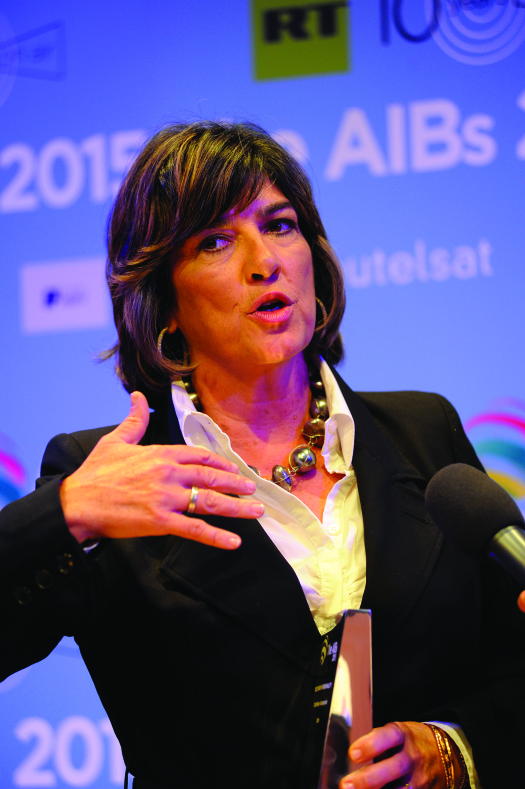| << Chapter < Page | Chapter >> Page > |
The media are our connection to the world. Some events are too big to ignore, yet other events, such as the destruction of Middle Eastern monuments or the plight of foreign refugees, are far enough from our shores that they often go unnoticed. What we see is carefully selected, but who decides what should be news?
As the chief international correspondent for CNN, Christiane
Amanpour is one media decision maker (
[link] ). Over the years, Amanpour has covered events around the world from war to genocide. In an interview with Oprah Winfrey, Amanpour explains that her duty, and that of other journalists, is to make a difference in the world. To do that, “we have to educate people and use the media responsibly.”

As Amanpour points out, journalists are often “on the cutting edge of reform,” so if they fail to shed light on events, the results can be tragic. One of her biggest regrets was not covering the genocide in Rwanda in 1994, which cost nearly a million lives. She said the media ignored the event in favor of covering democratic elections in South Africa and a war in Bosnia, and ultimately she believes the media failed the people. “If we don’t respect our profession and we see it frittering away into the realm of triviality and sensationalism, we’ll lose our standing,” she said. “That won’t be good for democracy. A thriving society must have a thriving press.”
This feeling of responsibility extends to covering moral topics, like genocide. Amanpour feels there shouldn’t be equal time given to all sides. “I’m not just a stenographer or someone with a megaphone; when I report, I have to do it in context, to be aware of the moral conundrum. . . . I have to be able to draw a line between victim and aggressor.”
Amanpour also believes the media should cover more. When given the full background and details of events, society pays attention to the news. “Individual Americans had an incredible reaction to the [2004 Indian Ocean] tsunami—much faster than their government’s reaction,” she said. “Americans are a very moral and compassionate people who believe in extending a helping hand, especially when they get the full facts instead of one-minute clips.” If the news fulfills its responsibility, as she sees it, the world can show its compassion and help promote freedom.
Why does Amanpour believe the press has a responsibility to report all that they see? Are there situations in which it is acceptable to display partiality in reporting the news? Why or why not?

Notification Switch
Would you like to follow the 'American government' conversation and receive update notifications?